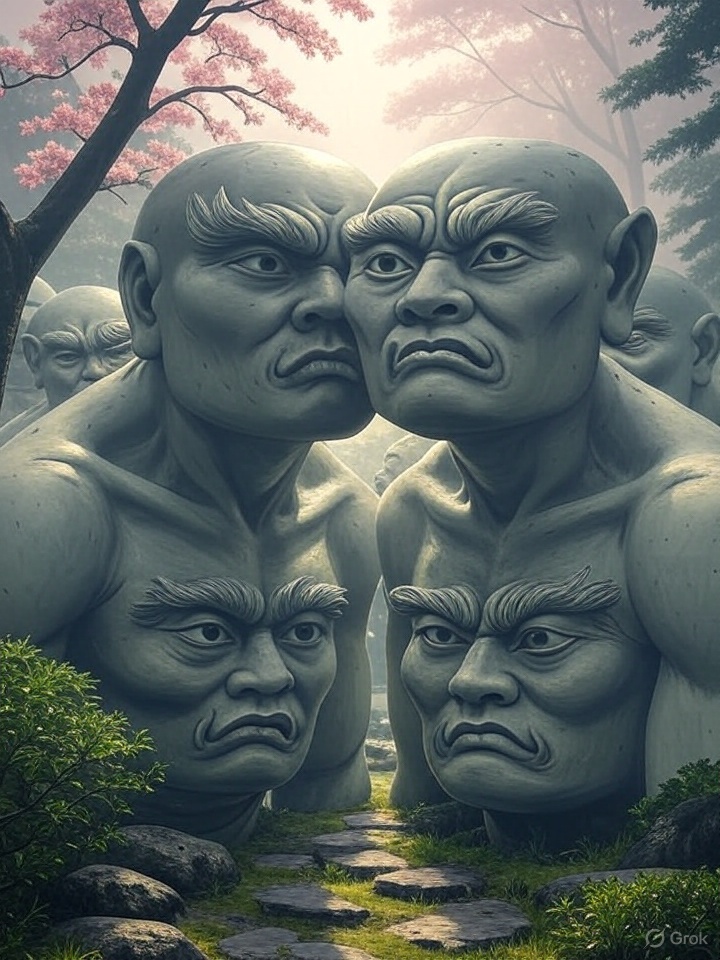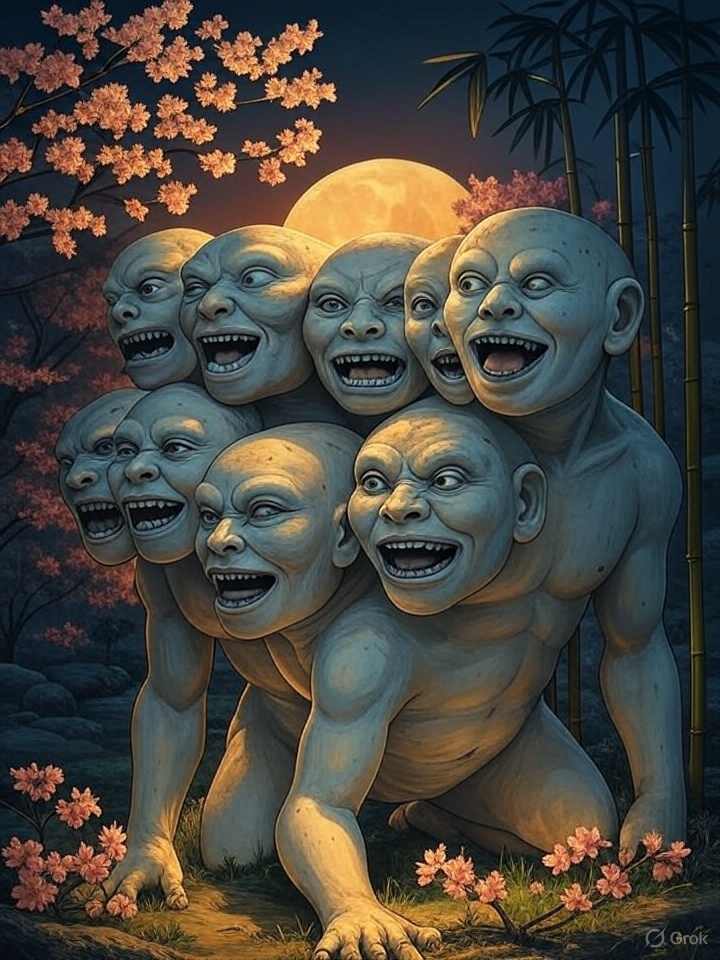Name Meaning
Overview
\n
Maikubi (舞首) translates roughly to “dancing heads.” It refers to the disembodied heads of three criminals who cannot stop arguing, even after death.
- Mai (舞) = dance
- Kubi (首) = head
Origin
- Derived from Edo-period folklore and ghost stories.
- Often featured in kaidan (ghost story) collections as a moral lesson.
Appearance
- Three disembodied heads, floating or rolling together.
- Each head represents a criminal soul condemned for eternal bickering.
- Grotesque and animated, with exaggerated expressions of anger.
Behavior & Myths
- The heads argue nonstop, often hurling insults at each other.
- Sometimes appear to travelers at night or near execution grounds.
- They are a symbol of unresolved guilt and endless punishment.
Symbolism
- Represents the futility of discord and karmic retribution.
- Embodies the idea that one’s deeds follow them beyond death.
- Appears in ghost stories to frighten and warn the living.

